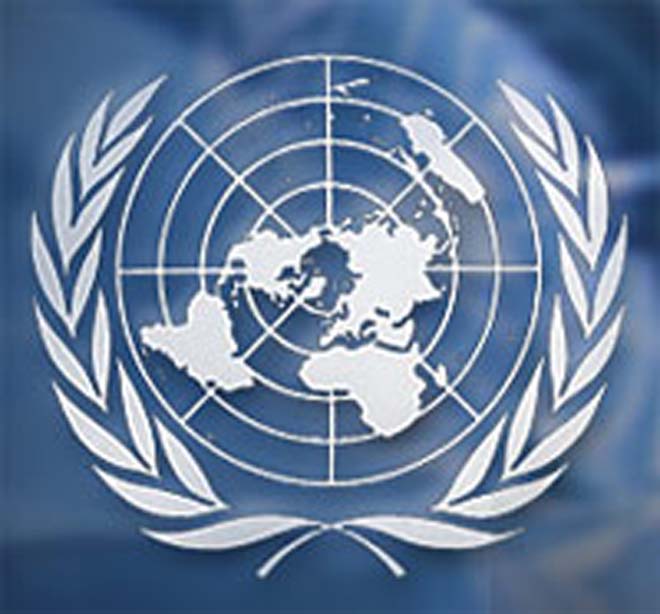Azerbaijan, Baku, Jan. 18 / Trend A. Akhundov /
The UN forecasts inflation for the region expected to decelerate to 7.8 per cent in 2012 and is likely to decline further in 2013, the data indicated in the organization's report "World Economic Situation and Prospects 2012" said. The main economic report was published on the UN website on Wednesday.
"Inflation for the region accelerated to 9.6 per cent in 2011, up from 7.1 per cent in 2010," the report said. "But headline inflation peaked in the Russian Federation and declined sharply in the second half of the year as the impact of the 2010 drought diminished. In Belarus, the devaluation of the rouble resulted in a sharp acceleration of inflation. In Kazakhstan, the one-off effects of customs union with Belarus and the Russian Federation resulted in price increases, as some imports became more expensive. According to the UN's economic outlook, more subdued growth due to global slowdown will lead to more moderate increases in prices in the region."
According to the report, economic growth strengthened fiscal positions throughout the region in 2011, especially in the energy-producing economies.
Despite high oil prices, payroll tax reform and increased tariff revenue in the Russian Federation, the budget ended roughly in balance, indicating its vulnerability to changes in the external environment. In Kazakhstan, a doubling of the duty on oil in 2011 to $40 per ton helped to reduce the deficit. Meanwhile, several countries in the region continued to receive external resources to support their economies. Among these, fiscal consolidation was substantial in Ukraine, while in Kyrgyzstan increased social and infrastructure spending widened the deficit.
According to the report, with a weakening of oil prices, deficits are likely to widen unless revenue is strengthened, the UN projects. This holds for the Russian Federation, in particular, where greater social and public spending in the run-up to the presidential elections is expected to widen the fiscal budget deficit.
Improved terms of trade and better employment prospects supported domestic demand in the region. In Belarus, domestic demand contracted, but exports rose strongly as a consequence of a sharp devaluation of the rouble. This was triggered by significant pressures on foreign-exchange reserves as large State spending and unsustainable growth in wages and credit fuelled import demand. In Azerbaijan, repair works at some drilling platforms disrupted oil production and contributed to a sharp deceleration in growth. By contrast, gas exports increased in Turkmenistan due to new infrastructure. The recovery from political unrest in 2010 and donor-funded infrastructure significantly boosted output in Kyrgyzstan.
The region experienced a significant rebound in agriculture after a bad harvest in 2010. This was
especially important for Armenia and Ukraine, the document said.
The economic recovery has been accompanied by a modest improvement in labour market indicators, with unemployment rates falling in the largest countries in the region. The economies of Georgia and the Republic of Moldova have shown limited ability to generate more jobs, despite continued output growth. In the outlook, labour market indicators are expected to improve modestly in the region.
The aggregate current-account surplus of the region widened, mainly due to the improved performance of Kazakhstan and the Russian Federation. Higher commodity prices and increased export volumes have driven an increase of exports in the region. The Russian Federation's external surplus underpinned significant capital outflows to the tune of $49.3 billion during the first nine months of 2011. In Ukraine, strong import demand, due in part to investment and construction related to the Euro 2012 football championships, offset higher exports and led to a widening of the current account deficit. But the UN report estimates that global economic slowdown is likely to reverse this trend.
In the Russian Federation, a moderation of inflationary pressures in the last part of 2011 and deterioration of the economic outlook led to a pause in interest rate increases. However, foreign-exchange interventions to support the Russian rouble amid worsening risk perceptions resulted in tighter liquidity. In 2012, growing downside risks to the global economy and lower inflationary pressures may prompt a loosening of the monetary stance in the region, the UN finds. This has already taken place in Armenia and Georgia, where key interest rates were reduced in the second half of 2011, and in Georgia, reserve requirements were loosened to stimulate the long-term financing of commercial banks, the report said.
Although adjustments induced by the last recession have reduced reliance on external funding in Kazakhstan and the Russian Federation, thus lowering their vulnerability, foreign financing remains critical for the region, in particular for Ukraine and other non-energy-exporting countries that continue to have large current-account deficits. For some countries, the increased likelihood of slower global economic activity is likely to impair access to global capital markets. Moreover, the financial sector remains fragile in several economies. This is dampening domestic demand. In a pessimistic global scenario, the CIS economies would enter into a recession with GDP falling on average by 2 per cent.
The Russian economy would suffer more than most, and contract by 3.6 per cent should the downside risks materialize, says the UN report.






